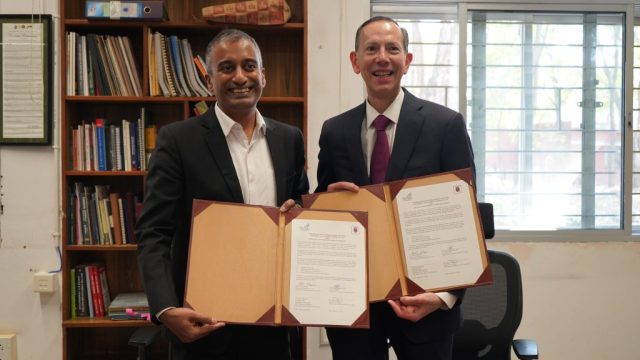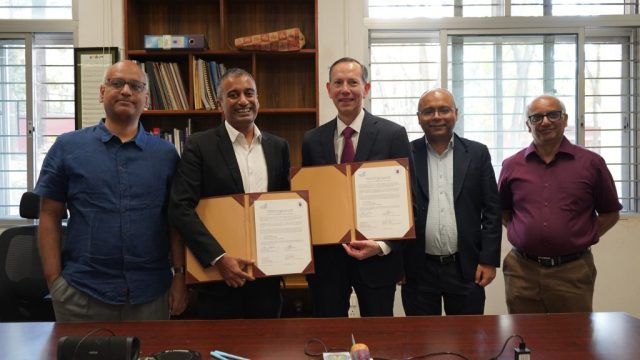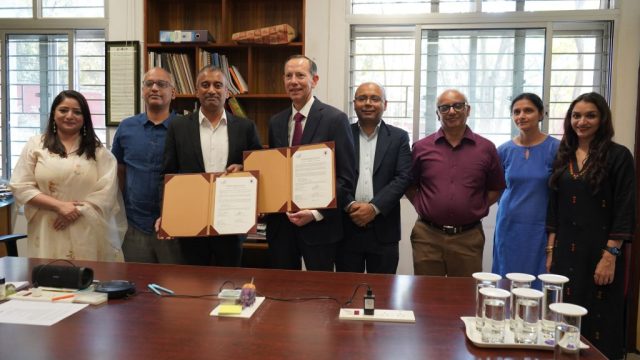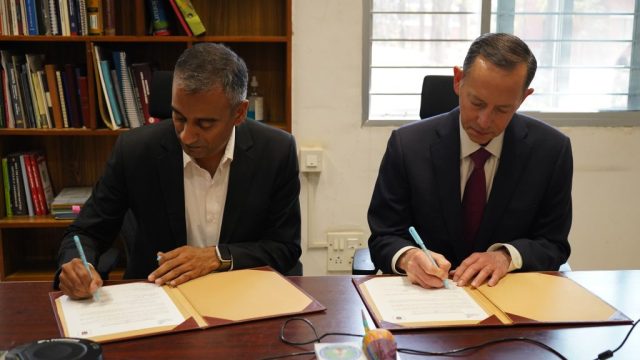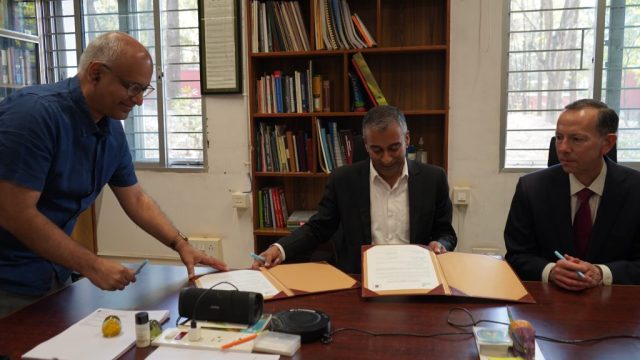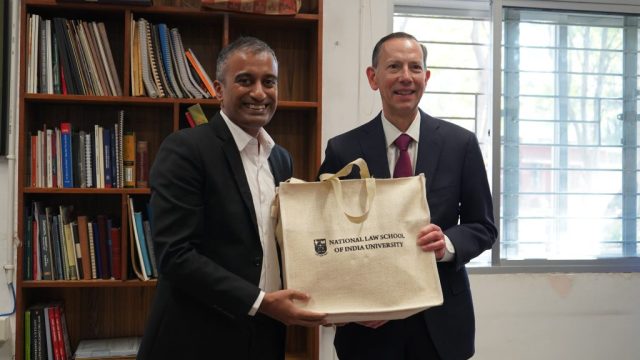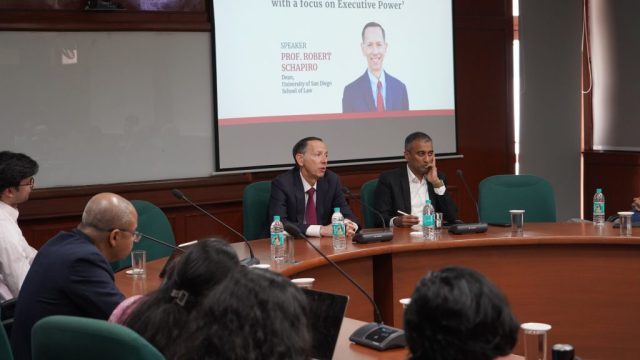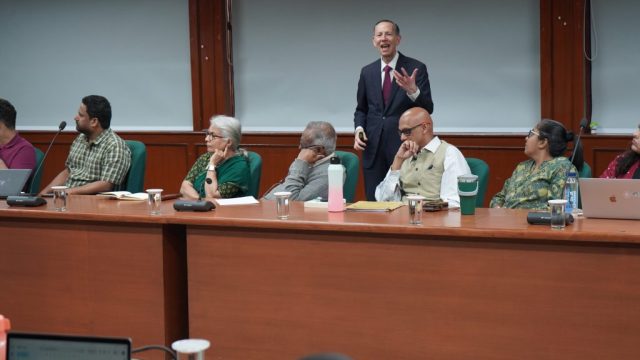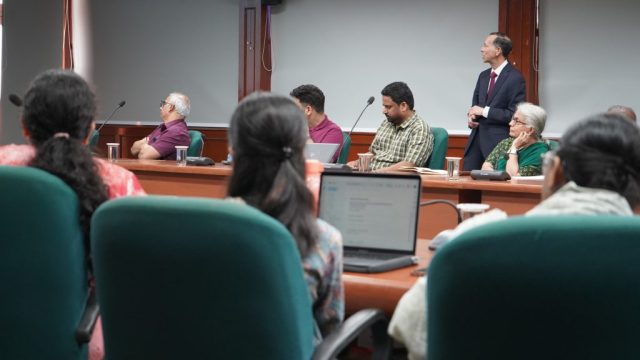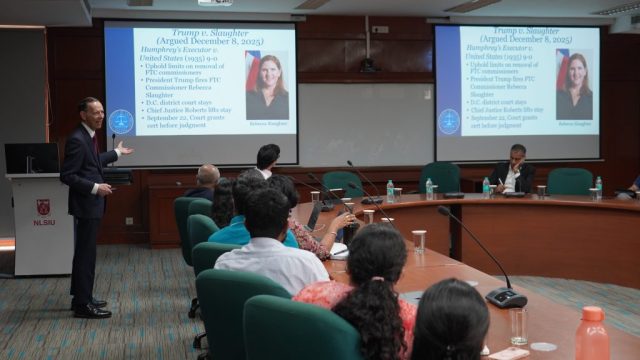Under the conversation series by eminent speakers titled ‘Crafting Careers,’ our next lecture features Ms. Rukmini S, Founder of Data For India as per the details below:
March 11, 2026 | 3.30 – 4.30 pm
OAB 201 A, NLS Campus
Crafting Careers
Crafting Careers is a conversation series at the University under the NLS BA (Hons) programme, designed to help students navigate the world of work. Each session in the series brings leading professionals from fields such as media, government, public policy, business, finance, and the creative arts to campus for candid conversations about their journeys. These experts will share insights and advice from their professional experiences and offer reflections on how social science majors may relate to different career pathways. These dialogues will offer students a chance to learn from diverse experiences, gain practical insights, and reflect on how to build careers that align with their own interests, skills, and values.
During her visit to NLS, Rukmini will be delivering another guest lecture for the wider NLS Community as per the details below:
Topic: Understanding India Through Data
March 11, 2026 | 5.30 pm
Ground Floor, Conference Hall, Training Centre
In an age of crumbling institutions and institutional credibility, what can Indian data tell us? How good is this data? What use is it, really? Using examples from Data For India’s work on India’s demographics, economy, health and legal system, Rukmini S will talk about her experience with what Indian public data can and cannot do, and what we can do with it. Data For India communicates socio-economic data to a lay audience using text, charts and the data itself. The analysis is built on three pillars – raw public data, a non-partisan approach, and transparency in analysis. In her talk, Rukmini will shed light on some of her team’s unexpected findings, and how this information is then used.
About the Speaker
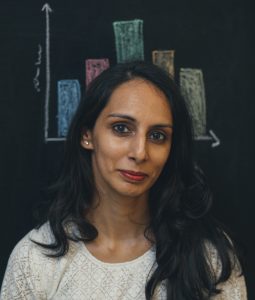
Rukmini S is a data journalist and the founder of Data For India, a public platform dedicated to deepening public understanding of India through rigorous and accessible data analysis. Her work sits at the intersection of data, democracy, and public reasoning.
Rukmini previously served as National Data Editor at The Hindu and HuffPost India. Over the years, her journalism has focussed on inequality, gender, caste, and politics, and she has written for a wide range of Indian and international publications. During the COVID-19 pandemic, her work on estimating excess deaths in India became a crucial public resource, earning her a 2022 Sigma Award (global data journalism awards) and a Jury’s Special Mention for Investigative Reporting at the Asian College of Journalism Awards.
Her pandemic podcast, The Moving Curve, received an Emergent Ventures COVID-19 India Prize in 2020. She was awarded the Likho Award for Excellence in Media in 2019 and received an Honourable Mention at the Chameli Devi Jain Awards for an Outstanding Woman Journalist in 2020.
Her first book, Whole Numbers & Half Truths: What Data Can and Cannot Tell Us About Modern India (Westland, 2021), won the Tata Literature Live! First Book Award (Non-Fiction) in 2022. The book reflects her sustained engagement with how numbers shape — and sometimes distort — public debate.
Rukmini holds a Post-Graduate Diploma in Social Communications Media from Sophia Polytechnic, Mumbai, and an MSc in Development Studies from SOAS, University of London. She is currently a Non-Resident Fellow at the Centre for the Advanced Study of India at the University of Pennsylvania.

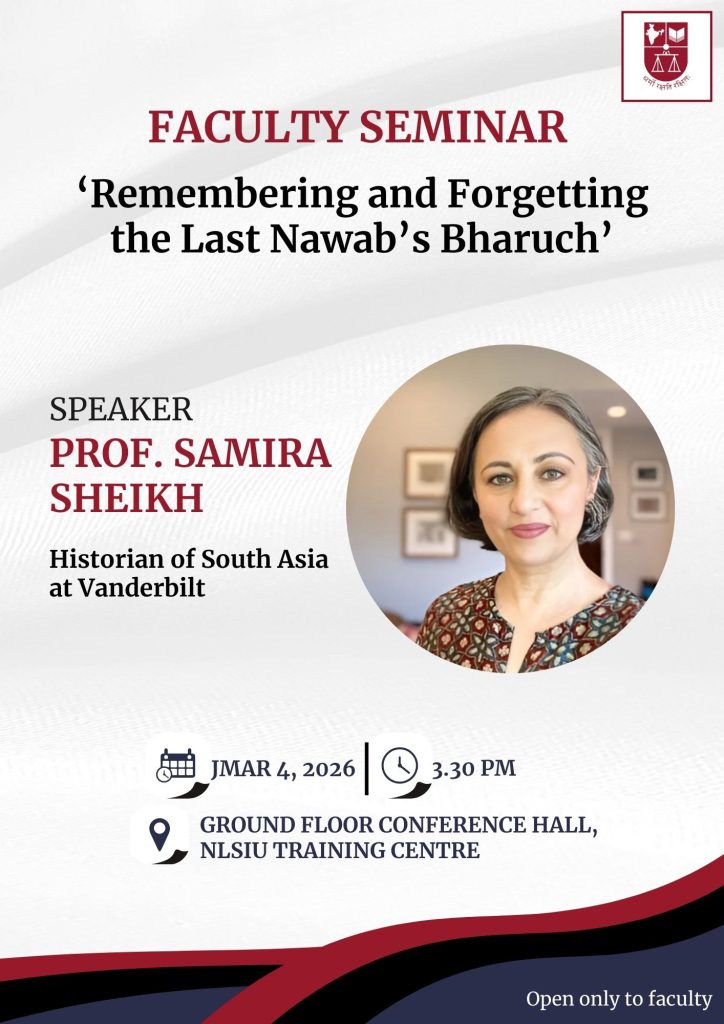 We begin our faculty seminar series this trimester with a guest lecture by Prof. Samira Sheikh, historian of South Asia at Vanderbilt, and the Obaid Siddiqi Chair in the History and Culture of Science, 2025-26 at the NCBS in Bengaluru. The seminar was held on March 4, 2026, at 3.30 pm, in the Ground Floor Conference Hall at NLSIU’s Training Centre.
We begin our faculty seminar series this trimester with a guest lecture by Prof. Samira Sheikh, historian of South Asia at Vanderbilt, and the Obaid Siddiqi Chair in the History and Culture of Science, 2025-26 at the NCBS in Bengaluru. The seminar was held on March 4, 2026, at 3.30 pm, in the Ground Floor Conference Hall at NLSIU’s Training Centre.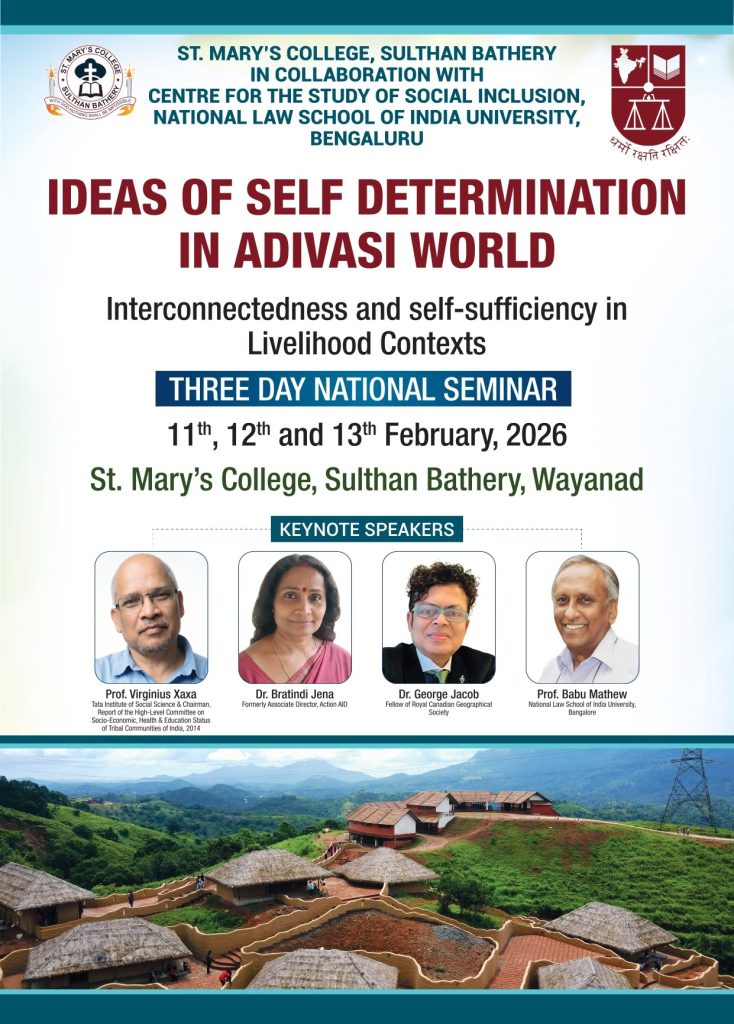 The National Law School of India University (NLSIU), Bengaluru, in collaboration St. Mary’s College, Sulthan Bathery, Wayanad, is organising a three-day national seminar on ‘Ideas of Self Determination in Adivasi World’ between February 11 and 13, 2026.
The National Law School of India University (NLSIU), Bengaluru, in collaboration St. Mary’s College, Sulthan Bathery, Wayanad, is organising a three-day national seminar on ‘Ideas of Self Determination in Adivasi World’ between February 11 and 13, 2026.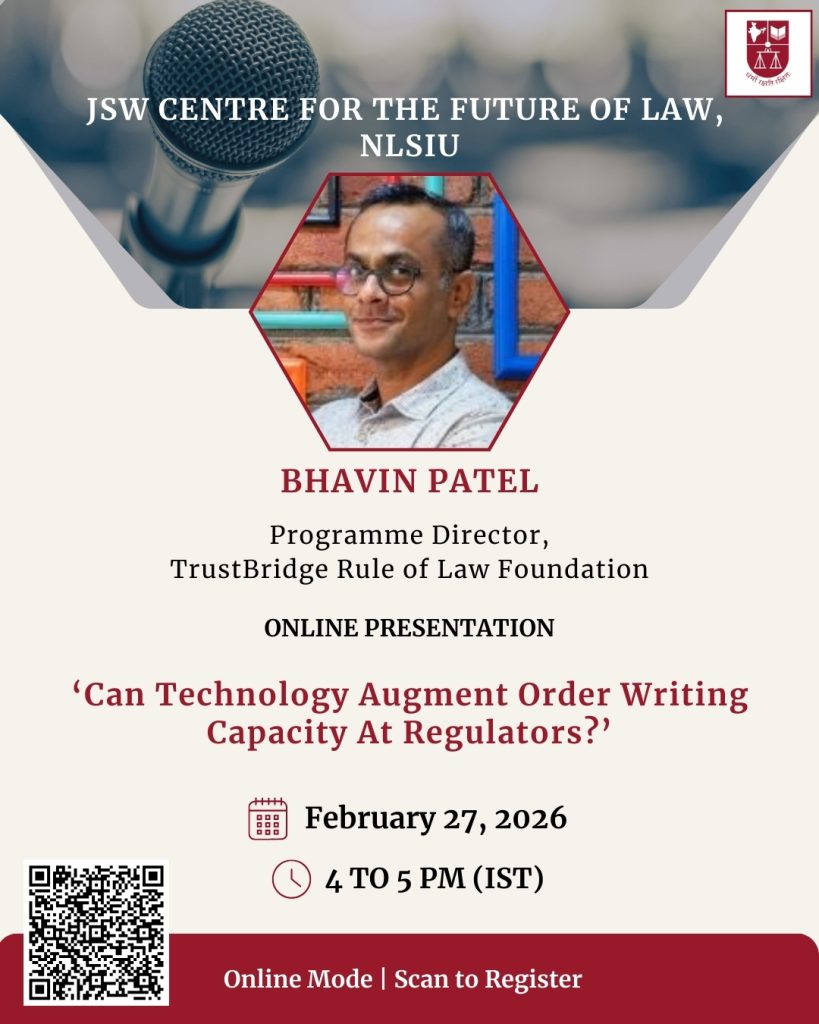 The
The 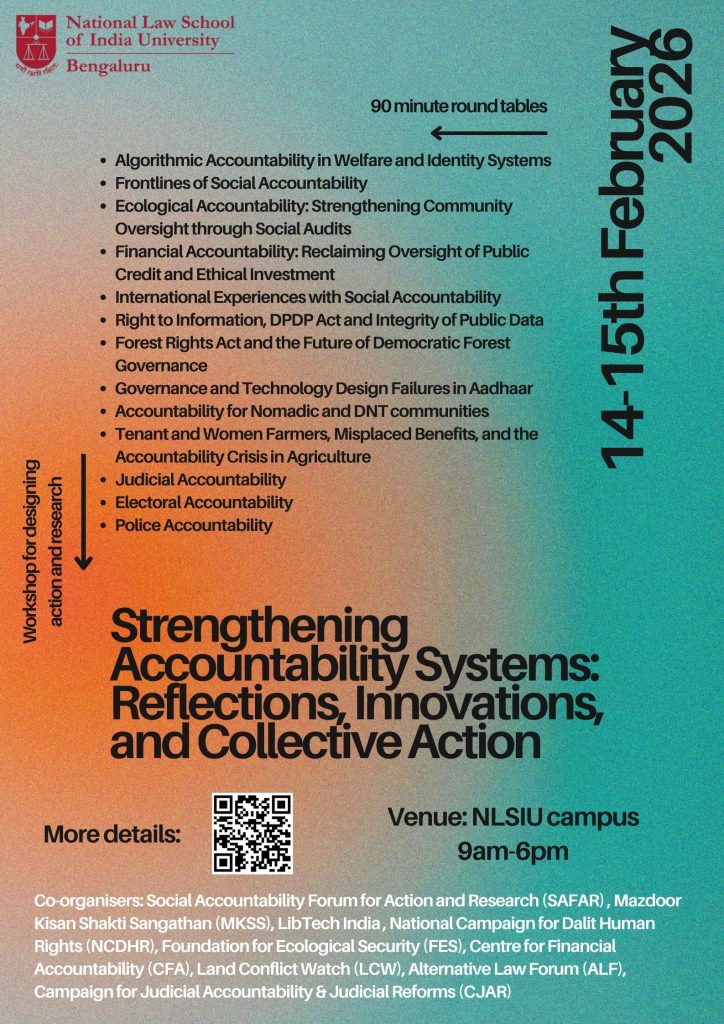 A joint effort by civil society organisations and the ‘
A joint effort by civil society organisations and the ‘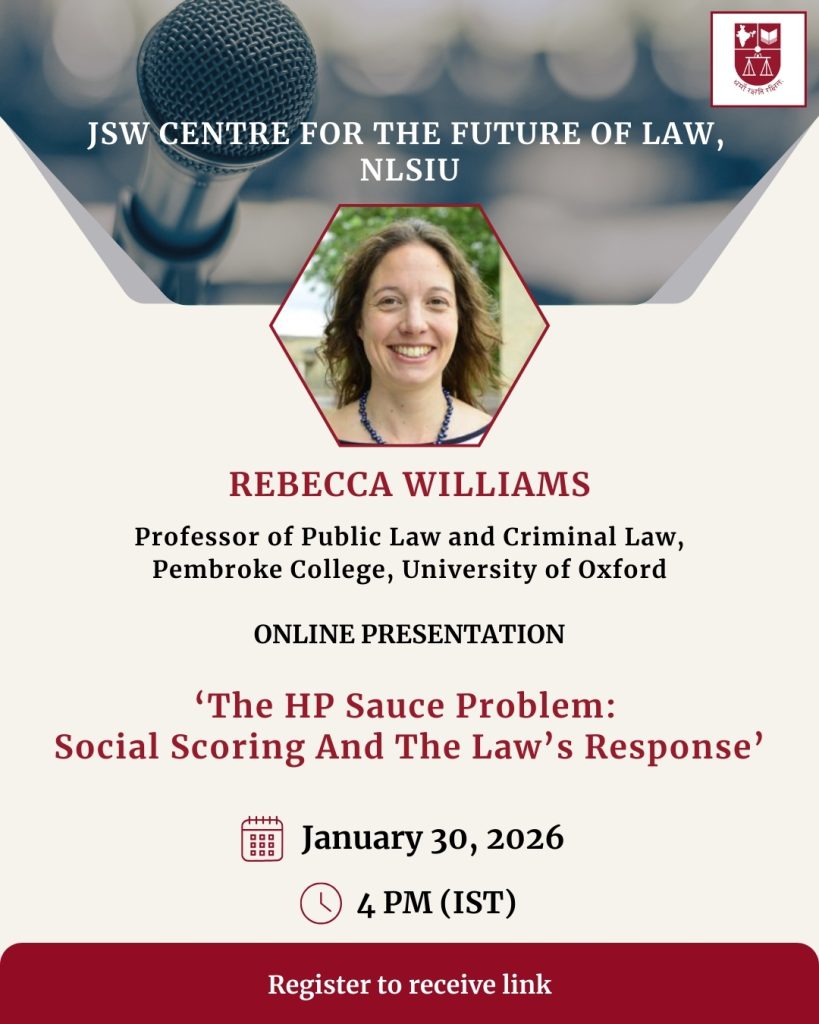 The
The  The Dean and C. Hugh Friedman Professor of Law at the University of San Diego School of Law, Dean Robert A. Schapiro, is widely regarded as a leading authority on federalism, constitutional structure, and inter-systemic governance. Dean Schapiro has a distinguished career spanning legal scholarship, academic leadership, and public engagement.
The Dean and C. Hugh Friedman Professor of Law at the University of San Diego School of Law, Dean Robert A. Schapiro, is widely regarded as a leading authority on federalism, constitutional structure, and inter-systemic governance. Dean Schapiro has a distinguished career spanning legal scholarship, academic leadership, and public engagement.